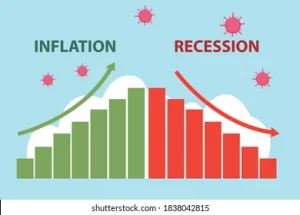
Consumer Goods Index has emerged as the top-performing sector on the Nigerian Exchange (NGX), delivering an impressive year-to-date (YTD) return of 32.4 per cent. This performance highlighted renewed investor confidence and improved fundamentals across the sector, driven by macroeconomic stabilisation, easing foreign exchange pressures, and strong consumer demand.
Data from the Nigerian Exchange (NGX) revealed that the Consumer Goods Index has become the best-performing sectoral index so far in 2025, outpacing six other major indices. These include the All-Share Index (ASI), Industrial Goods, Oil & Gas, Insurance, Banking, and the ASeM indices.
This marks a significant turnaround from May 2022 when the index was the worst-performing, delivering a modest return of 12 percent. During the period, it lagged behind the Oil & Gas Index which returned 50.3 per cent, the ASeM Index with 23 per cent, and the Banking Index with 17 per cent.
However, as of the close of trading yesterday, the Consumer Goods Index had surged by 32.4 per cent year-to-date, outperforming the All-Share Index which gained 5.9 per cent. Other indices lagged behind, with the Industrial Index down by 3.89 per cent, Oil & Gas declining by 12.4 per cent, Insurance down 5.6 per cent, Banking gaining 6.6 per cent, and ASeM recording a marginal 0.6 per cent return.
Recall that the consumer goods sector was among the worst hit by the foreign exchange crisis, which severely impacted company earnings and eroded shareholder value by the end of 2022 and into early 2023, causing many firms in the sector reported significant losses during this period, as the volatile exchange rate environment inflated costs and undermined profitability.
Data from the Exchange showed that several companies in the sector have recorded significant recoveries, returning to profitability for the first time since 2023. This turnaround is largely attributed to the Central Bank of Nigeria’s (CBN) strategic interventions to stabilise the naira and improve FX liquidity measures that have begun to reduce the cost pressures and currency-related losses that previously plagued the industry.
For instance, Cadbury Nigeria Plc returned to profitability in 2024 after suffering significant losses in the prior year. BUA Foods and Honeywell Flour Mills also defied FX-related headwinds to post strong earnings, showcasing operational resilience and renewed growth momentum.
For instance, three key players, BUA Foods, Unilever Nigeria, and Cadbury Nigeria posted combined revenue of N522.9 billion in Q4 2024, representing a 104.6 per cent increase from N255.6 billion in the corresponding period of 2023.
BUA Foods led with N437.4 billion in revenue in Q4 2024, up 114.4 per cent from N204 billion a year earlier. It also achieved a pre-tax profit of N73.4 billion, a 288.04 per cent surge from the N18.9 billion posted in Q4 2023. Despite absorbing FX losses of N188 billion in 2024, the company posted a full-year profit of N289 billion, representing a 167 per cent increase.
Cadbury Nigeria’s Q4 revenue also rose to N39.6 billion, up 87.3 per cent from N21.1 billion in Q4 2023. It posted a pre-tax profit of N2 billion, marking a turnaround from a pre-tax loss of N17.3 billion in the previous year. This helped cut its full-year pre-tax loss by 47 per cent to N14.8 billion.
NASCON, despite incurring N3 billion in FX losses in Q1 2024, which led to a 25 per cent dip in profit after tax, grew its full-year profit by 14.9 percent to N23.6 billion.
Operators believe the turnaround in the consumer goods sector is the result of a combination of macroeconomic reforms, FX market stability, and operational efficiency by industry players.
They observed a re-rating of the consumer goods space by investors who previously avoided the sector due to FX-related volatility as several companies in the sector have shown they can deliver strong results even in challenging conditions, which is reshaping market sentiment.
Executive Director of Halo Nigeria Capital Management, Dr. Paul Uzum, noted that the recent rally in consumer goods stocks aligns with earlier projections made at the start of the year.
According to him, the end of persistent foreign exchange losses in 2024, coupled with rising prices of goods and services, positioned many consumer goods companies to return to profitability.
He added that the market is now actively repricing these stocks to reflect their improved earnings potential.
Similarly, the President of the New Dimension Shareholders Association of Nigeria, Patrick Ajudua, observed a resurgence in investor interest in consumer-focused equities.
He attributed this trend to the relative stability of the naira, a significant reduction in the impact of FX losses, improved bottom-line performances, and the resumption of dividend payments. According to him, these positive developments have helped restore investor confidence in the sector.
On a YTD basis, Honeywell flourmills, a firm in the sector with a market capitalisation of N150 billion has returned 201 per cent gain to shareholders. The firm resumed trading in January 2025 at a share price of N16.30 kobo but closed yesterday at N18.95 kobo.






